Karsar: pioneer’s experience
About formation of civilized custom infrastructure in the 1990s
Realnoe Vremya continues its special project called TAIF-25 that is dedicated to the anniversary of the Group of Companies. Founded 23 years ago, the 'Karsar' company, which served as a cargo Customs Service, is one of the first units of the multisectoral TAIF holding. At that time, there wasn't any organization of that kind. In this issue, we talk about the way of the development of the company from the moment, when declarations were written on typewriters till the complete electronic cargo processing, about the creation of the single customs computer network and today's activities of the company.
Starting point
In autumn of 1998 Iran brought towels, wash-basins, tomato paste and dried fruits along with bracelets, necklaces, tea sets, painted plates, jewellery boxes, and carpets for an exhibition in Kazan…The hangar of the Karsar customs and logistics terminal was full of the products of the country of Western Asia. 'They had piles of goods that needed to be declared. Even they didn't know what they had and the exact amount of things. Yes, now it's a funny story to tell, but we were in dead earnest. All the colleagues unloaded and recounted the luggage far into the night because the exhibition was about to open and, we still needed to get customs clearance for that articles. We had to operate in emergency mode bringing something to the table of the trade and economic cooperation with Iran,' said Alfred Shigabutdinov, the director of the 'Karsar' company sharing his memories with us.
It is only now the customs declaration is electronic, and it's possible to do it in advance: when goods aren't on the territory of the Customs Union, and all the documentation needs verification. This is why cargo execution takes one working day as maximum and an hour minimum, whereas in the 1990s this process took 10-15 days, upon arrival of goods.
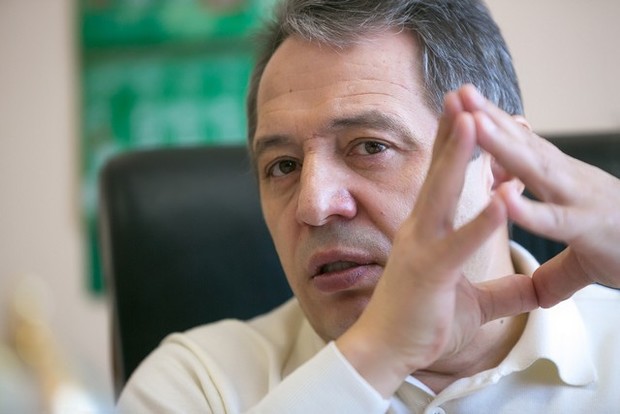
'Without exaggeration, today's market of customs services of Tatarstan is based on the experience of the applicants of 'Karsar', said Alfred Shigabutdinov.
Some workers of Karsar remember a period when declarations were written on typewriter. The pioneer, sui generis, works from autumn of 1992 when there were no customs infrastructures in Tatarstan yet. In December, the company worked as customs applicant on the basis of a certificate issued by the Customs of Kazan. In a year with the advent of an order of the State Customs Committee of Russia regulations on customs warehousing were approved, so Karsar established its own warehouse expanding the range of intermediary services in Customs Affairs.
In Russia in 6 years, according to the Customs laws, the Institute of Customs Broker was officially founded. It attached the right and the responsibilities of profit making organizations, which offer services for declaration. And Karsar was granted a status of the first in Tatarstan customs broker. Their services were in demand, so that Karsar signed 1,600 agreements with participants of the external economic activity. This way Karsar facilitated the advent of a necessary infrastructure on the market, and unwittingly became an example for the others demonstrating that it's possible to make a profit from the customs service of high-quality.
To increase the speed
By the early noughties, the company gained wide experience, formed a team of skilled specialists and consolidated its positions in the service market on customs processing. This is the reason why it is logical Karsar became a broker that participated in the development of the customs control methods for facilitating the process of customs clearance. It is supposed that from that time a civilized market of customs services in Tatarstan started to form, which is a characteristic of the leading market economies allowing to honorably represent the interests of participants of external economic activity.
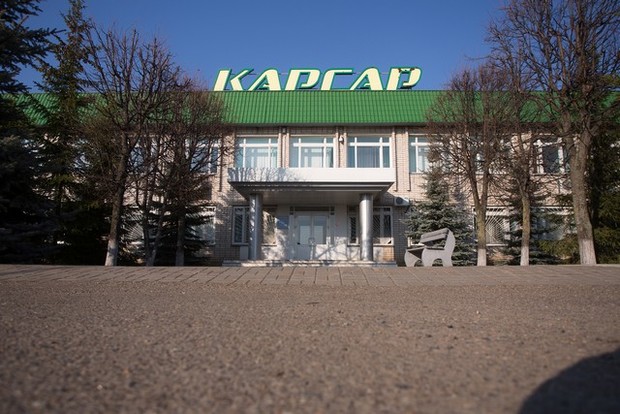
When the market of customs services developed, Karsar needed to open branches in Nizhnekamsk, later in Almetyevsk and Bugulma. The outdoor and indoor areas of the three warehouses of temporary storage (in Kazan, Nizhnekamsk and Bugulma) constituted more than 6,000 square meters. All the warehouses were fitted with modern security, loading and unloading equipment.
'We laid optical fiber cable for the three branches. We needed a single computer network with the Customs, otherwise, processing would be slower. Let us suppose that a declaration with the use of hazardous substances is carried out in the place of receipt. And here it begins: our customs station communicates with the customs office of Volga region, they, in turn, contact with Moscow. Moscow checks everything, gives a permission, and the information is sent back in that chain order again. But when the single network appeared as well as the single database, processes speeded up, and operational efficiency improved,' told Alfred Shigabutdinov.
Kazanorgsintez and Nizhnekamskneftekhim were principal clients of Karsar, which was created by TAIF to work in customs business. Undoubtedly, the large enterprises had their own applicants. But it took too much time for their employees to execute documents on the spot, take them to the Customs, wait for specialists to come to the factory for vetting. When they started to work with Karsar, a vehicle entered the territory of the customs terminal in the morning, in the afternoon, it departed to its destination: Turkey, Italy, France, Germany, Norway and Bulgaria…
When TAIF initiated the modernization of the enterprise of Crude Oil distillation Plant (ELOU AVT-6) in Nizhnekamsk, the registration of the installations was fulfilled according to bonus rates. 'We always made concessions. Some part of the work was done for a token payment. It was impossible to afford high expenses for the modernization of the petroleum refinery. It would make an impact on the prime cost of the petroleum,' said Alfred Shigabutdinov.
Being a customs broker, Karsar offered services to Optomechanical Factory of Kazan, joint-stock companies like Kazancompressormash, Khiton, Kvart, Nefis, Synthetic Rubber Factory of Kazan, Radiopribor, Medical Instrument Factory of Kazan, etc. Moreover, the company was responsible for the most complicated segment of that market – customs handling of imported freight, including technological equipment, machines and construction materials. The xperienced workers of Karsar, who have qualification certificates of the Customs Committee of Russia, managed this very specific and responsible work – they're not out of their depth in it. 'Without exaggeration, today's market of customs services of Tatarstan is based on the experience of the applicants of Karsar. They are our skeleton staff that came in 1992,' tells Alfred Shigabutdinov.
The company helped to declare some serious freights such as telephone equipment for TAIF-Telcom and Intelset, heat-power, agricultural equipment, construction materials and supplies, finishing materials for the Kazan Kremlin, the famous Piramida Cultural and Leisure Centre and many other buildings included in the federal programme of the reconstruction of the historic centre of Kazan dedicated to the millennium of the city.
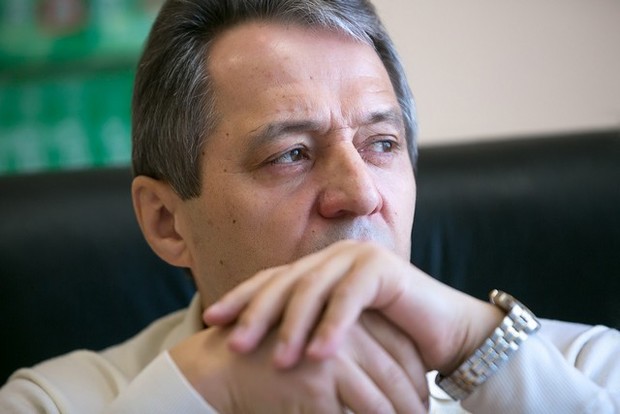
Not only industrial and building enterprises used services of Karsar customs broker. Melpomene's servants had important freights too while creating the atmosphere. Going on tour, all the theatres registered their stage props through the customs terminal. 'We registered the principal peculiarity of the Grand Concert Hall of Kazan – the large organ, which was brought from the Netherlands and installed in 1997,' says Alfred Shigabutdinov.
Karsar was the only customs broker that dealt with alcoholic beverages, which required a separate licence. The procedure of settlement of excise on goods was complicated that brokers didn't manage it. Moreover, Karsar was an importer of alcoholic products delivering inexpensive wines and elite alcoholic drinks for various strata of society. The company executed wholesale dropshippings of natural dry wine from Italian producers, who have a 200-year history like C&G Marano and Torraccia di Presura SRL.
And it was the only company that registered lorries and passenger cars for the reason that the latter vehicles were delivered to Karsar only. The company had its own warehouses, so they decided to expand the range of activities and opened a car dealership where Zhigulis were sold. According to our interlocutor, the new activity flourished. Then they started to visit Ulyanovsk for Chinese lorries. So, from the end of the 1990s, during 6 years, they dealt with car sales and service.
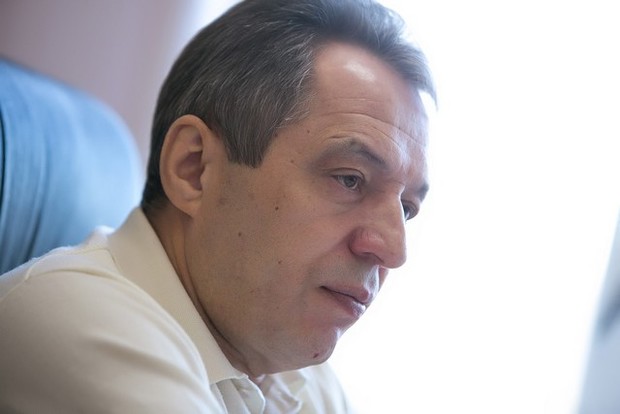
About 70% of the imports and exports of Tatarstan went through Karsar'customs terminal. The export and import were split 50/50. A big part of the goods were re-exported. 'To be honest, all the products that were turned down abroad go to Russia. Back in the day, we bought a radiation detecting device. In accordance with a law, a warehouse must be fitted with an X-ray scanning device. And it cost 6m rubles. We had situations in which an examined freight was 'shining'. How could we let that ceramic tiles pass? One could buy it and then live in the environment with high level of radiation,' explains Alfred Shigabutdinov.
Caring about clients
Working with the largest part of the goods export and import of the republic, the point of delivery, situated near the city entrance, was lined with lorries carrying 20 tonnes, which are equal to fifty cars. Initially the territory of the office, where a driving school of Volunteer Society for Cooperation with the Army, Aviation, and Fleet was located earlier, represented a sorry sight.
'When it was raining, lorries couldn't enter the territory. The drivers were swearing like troopers. Only caterpillar tracks could tug the vehicle out of the mire, but we had to find a brave tractor driver who would agree to help. Especially we felt uncomfortable because foreigners got used to cleanliness and asphalt that we urgently needed to lay. Once upon a time, the head of the road-building sector came to us. His car was taken away. We quickly solved the problems through the Customs, he paid a fine, and we got acquainted. I remember he was surprised with that mire. So, he offered to lay a civilized asphalt to allow vehicles to enter. What is more, we had no money. Anyway, we could come to an agreement. All work was done in stages, and money was paid in instalments,' Alfred Shigabutdinov remembers.
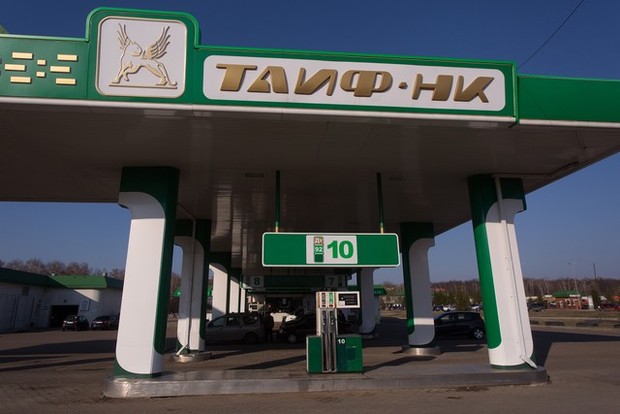
In a month, the territory was covered with sand, brick rubble and crashed stone at the very end. The bed was 50 cm high so that no heavy-duty truck might destroy it. Asphalt was laid according to the rules: 2 courses of 9 cm high. Within two years, the territory was tidy and clean. I have been working here during a long period of time, and asphalt is always in good condition, we used the road all the year round, though.
From producer to petrol tank of car
If the market of customs services developed along with the progress of the company, in the course of the time it was necessary to satisfy the new requirements – the place of the receipt was to be situated out of the city. Consequently, in winter of 2011 the customs terminal and the warehouse of temporary storage were transferred to the territory of Biyek Tau (High Mountain) logistics terminal, which was built in the transport corridor China-Russia-Europe on the M7 Federal Road.
Temporary warehouse storage provides high profitability of a customs broker. This is why, closing warehouses, Karsarbrought down the curtain on customs activity. The market conditions changed: if earlier there were two principal players, the pioneer Karsarand Rosteck, which was approved later by the State Customs Committee of Russia, now a lot of companies exist, and they are able to register freights and offer other attendant services quickly and well. As a result, the given a powerful spur to the development, the market became advanced and civilized. Then the TAIF Group of Companies supposed to have completed the task and decided Karsarwould focus on other activities.
What we do today is retail trade in petrol, rental business, maintenance of residential property, and service of cars along with petrol sale of TAIF-NK PJSC petroleum refining complex make the most profit,' says Alfred Shigabutdinov. Karsar owns a lorry fleet where fuel delivery is carried out. Without entering the warehouse, fuel is straight dumped into the tank of a petrol station. It excludes the mixture of fuels of different producers. At petrol station the fuel is still 'warm'. What is more, petrol transportation to oil tank farm, which later goes to the petrol station, involves additional expenses, which, finally, have an impact on costs of a litre of petrol and margin reduction, what is successfully avoided by Karsar, which is the only operator of Tatarstan fuel producers.
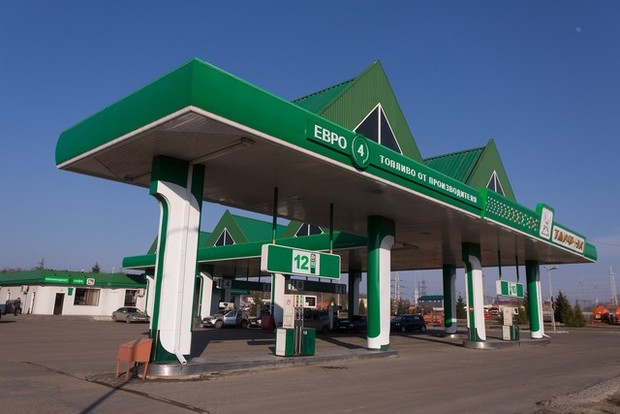
At present, Karsar owns 20 petrol stations. The last station opened in Buinsk, the construction of the station in Laishevo and one station more in Kazan are close to the end. 'We are proud to work selling our petrol, high quality of which is proved by the multi-step system of control. We aspire to make petrol available for everyone without high markups: from a Zhiguli owner to a Mercedes driver. Only this year it is planned to open new 10 stations if the crisis doesn't make adjustments,' Alfred Shigabutdinov says talking about new priorities.
Speaking about other points of application, it's necessary to mention another activity of the company which is a lease of commercial property. Karsar has office centres fitted with modern utility systems on Spartakovskaya, Parizhskaya Communa, Academicheskaya, Mushtari, Vishnevskogo, Adelya Kutuya, Chetaeva and Prospect Pobedy streets. In addition, the company maintains residential properties. The TAIF community centre, on Patris Lumumba Street, was the first establishment that Karsar started to maintain in December of 1999. And at the end of 2010 Karsar took control of the Residential Complex on Gogol Street, which embodied the best ideas of modern housebuilding on the territory of 37,000 square meters. A property situated on the shore of the Volga River in Borovoye Matyushino has being maintained by the company since 2011. In other words, Karsar consolidated its position in the market of maintenance of prime residential property.